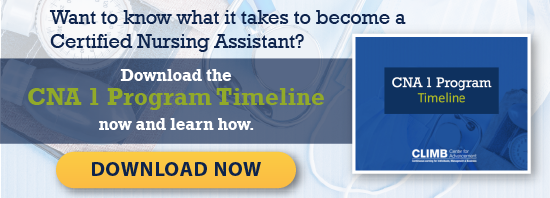 With a healthcare professional shortage in America there is a huge need for new and emerging healthcare workers. Community colleges play a vital role in educating future healthcare professionals and shaping the healthcare landscape. According to Dr. Kevin Fleming the CEO of Telos Educational Services, the past several decades have seen a large emphasis placed on the importance of people receiving college educations and advanced degrees. The belief has been that with a more advanced degree comes higher pay. There is a misalignment between education and the workforce. There’s been a “college for all mentality” instead of a “post-high school credential for all” mentality. Fleming shares that 66% of high school graduates enter college; but only 1/4 finish their bachelor’s degrees. Experts have predicted that by 2018, only 33% of the workforce will be required to have a four-year degree.
With a healthcare professional shortage in America there is a huge need for new and emerging healthcare workers. Community colleges play a vital role in educating future healthcare professionals and shaping the healthcare landscape. According to Dr. Kevin Fleming the CEO of Telos Educational Services, the past several decades have seen a large emphasis placed on the importance of people receiving college educations and advanced degrees. The belief has been that with a more advanced degree comes higher pay. There is a misalignment between education and the workforce. There’s been a “college for all mentality” instead of a “post-high school credential for all” mentality. Fleming shares that 66% of high school graduates enter college; but only 1/4 finish their bachelor’s degrees. Experts have predicted that by 2018, only 33% of the workforce will be required to have a four-year degree.
In the new economy, there is a desperate need for highly-skilled employees. Education plus technical skills are required to gain a competitive edge, essentially making technical credentials more valuable than a university degree. Community colleges are in an excellent position to provide 70% of the future workforce. They provide career prep plus education plus technical training. This post will discuss the important role of community colleges in the healthcare industry and how community colleges are growing the healthcare landscape.
Community Colleges…
Provide Technical Credentials
Community colleges provide educational opportunities to obtain healthcare credentials and real-world experience. PCC Institute for Health Professionals offers training and technical credentials to become a pharmacy technician, phlebotomist, certified nursing assistant, sterile processing technician ,medical coder, and patient access specialist — just to name a few.
The Bureau of Labor Statistics has projected that healthcare support occupations/healthcare practitioners and healthcare technical occupations will be the two fastest growing occupational groups from 2014-2024. These two groups are projected to contribute the most new jobs, representing about one in four jobs. Community college programs offer career prep, education, and the technical training needed to successfully fill a healthcare job role.
Allow the Transfer of Degrees
Community colleges offer associate's degrees that are easily transferable to a university should further education be desired. For example, entry-level nursing programs offer knowledge and skills required for an introductory nursing position, qualifying students to take the National Council Licensure Examination for Registered Nurses. Programs, such as these, prepare students to become a licensed RN. An Associate's of Applied Science Degree is granted after two years at a community college then students have the option to transfer to a four-year university to complete a bachelor’s degree in nursing. Community colleges often partner with healthcare providers who offer on-the-job training, mentors, and accelerated degree programs, all of which lead to pay raises and career advancement.
Provide Continuing Education
Healthcare professionals need to obtain continuing education credits every year to maintain licensure and certifications. Community colleges are great places to take continuing education courses, such as American Heart Association (AHA) certification classes and advanced training in specialty areas for paramedics and nurses. These courses can also be used to refresh one’s knowledge in a particular area and learn new skills.
Allow Flexibility to Start New Programs to Fit Market Needs
Community colleges have the flexibility to start new programs in order to meet the needs of the market. Programs, such as MIHT and RIAMP, are advanced coursework for paramedics and qualified military personnel who wish to become advanced paramedic providers. Offering such programs meets the needs of the market and qualified employees looking to advance their educations and careers.
The role of community colleges in the healthcare industry is central in providing the properly skilled and educated workforce that is necessary in our new economy. To meet employer demands for highly skilled employees, the “college for all” mentality needs to be revisited and attention needs to be given to aligning people’s skills and interests with the current labor market. Community colleges fill this role and will continue to advance the healthcare field as it rapidly grows and expands.




